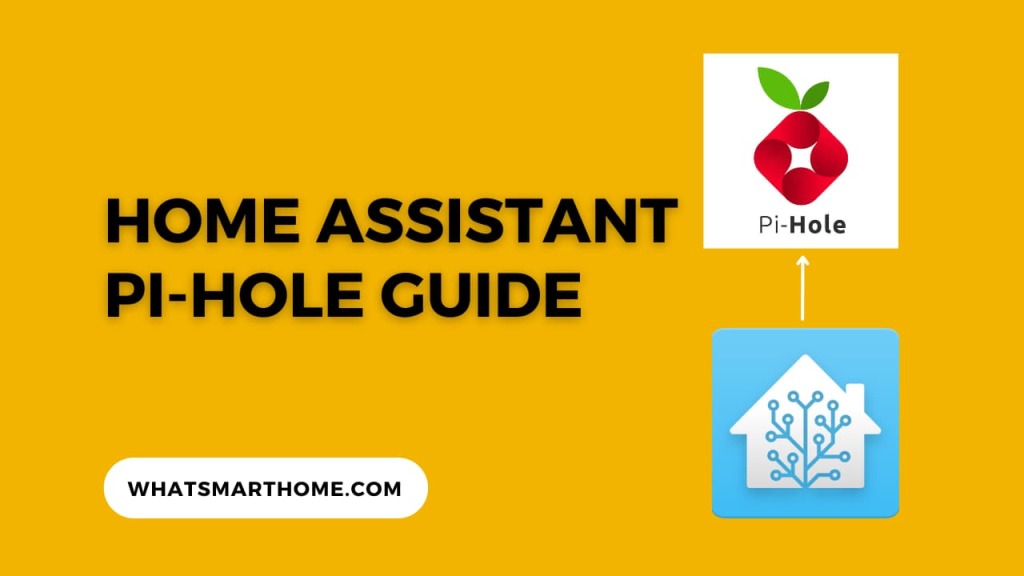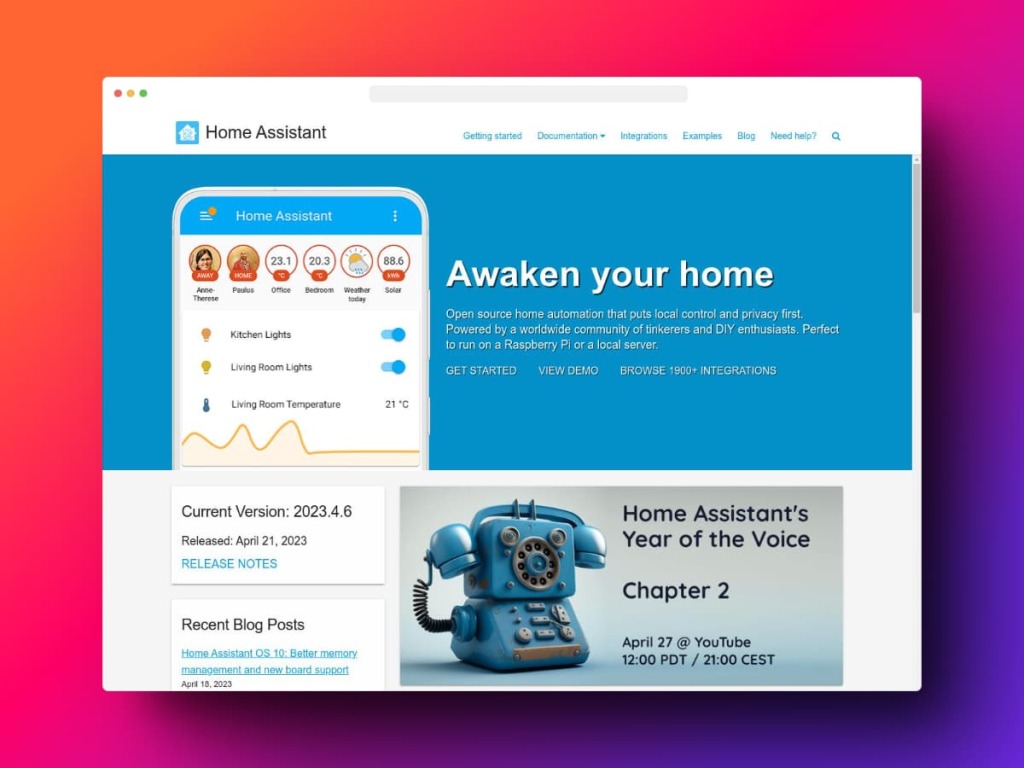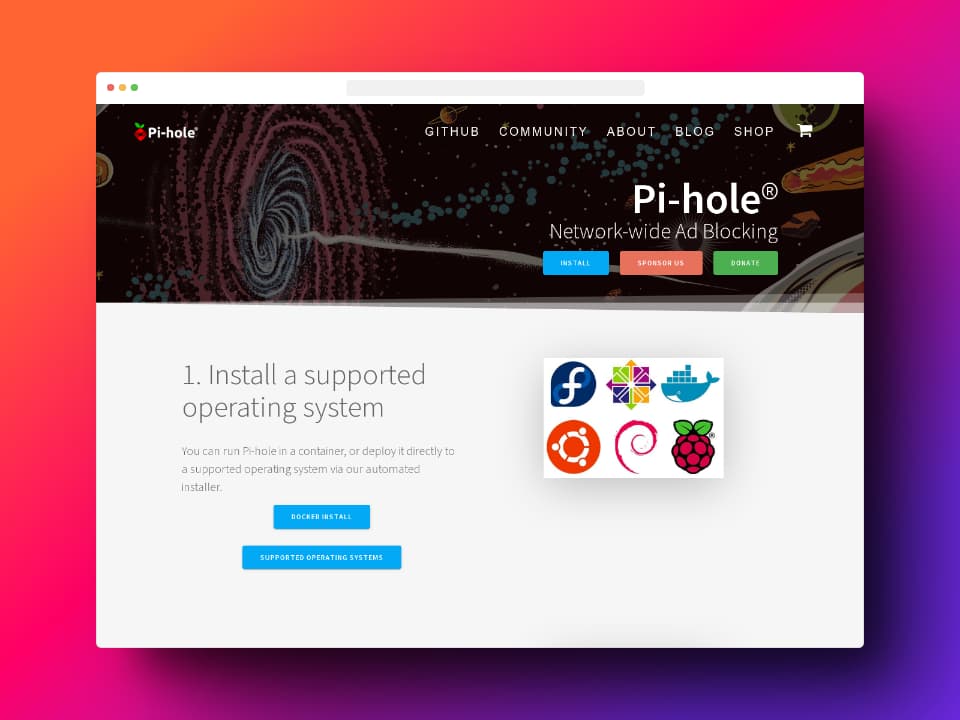Are you a smart home technology enthusiast looking to enhance the privacy and security of your home automation system? Look no further than the powerful combination of Home Assistant and Pi-Hole.
In this article, I will explore the Home Assistant Pi-Hole integration on how they work together to provide a seamless and secure smart home experience. Get ready to take your home automation to the next level!
Table of Contents
Introduction
Smart homes have revolutionized the way we live, offering convenience, comfort, and control at our fingertips. However, with the increasing number of connected devices, ensuring privacy and security becomes paramount. Home Assistant and Pi-Hole offer an excellent solution to address these concerns.
Understanding Home Assistant
Home Assistant is an open-source platform that allows you to control and automate various smart home devices from different manufacturers. It acts as a central hub, bringing all your devices together and providing a unified interface for managing them.
Introducing Pi-Hole
Pi-Hole is a network-wide ad blocker that runs on a Raspberry Pi or any other Linux-based device. It acts as a DNS sinkhole, blocking ads, tracking domains, and malicious websites at the network level, providing an ad-free and secure browsing experience.
Home Assistant Pi-Hole Integration
By integrating Home Assistant with Pi-Hole, you can take advantage of the extensive capabilities of both systems. Home Assistant can leverage Pi-Hole’s ad-blocking functionality to enhance the privacy and security of your smart home devices.
Home Assistant previously had an addon available for Pi-Hole but this addon is now deprecated and no longer supported.
The official Home Assistant Pi-Hole integration will allow you to control parts of Pi-Hole directly from your Home Assistant server as well as see statistics such as bandwidth saved and how many ads have been blocked for the past week.
Benefits of Using Home Assistant and Pi-Hole
Using Home Assistant and Pi-Hole together offers several benefits:
Enhanced Privacy:
With Pi-Hole blocking ads and tracking domains, your smart home devices are shielded from unwanted data collection, ensuring your privacy.
Secure Browsing:
Pi-Hole’s ability to block malicious websites adds an extra layer of security to your smart home network, protecting your devices from potential threats.
Seamless Integration:
Home Assistant seamlessly integrates with Pi-Hole, allowing you to monitor and control Pi-Hole settings directly from the Home Assistant interface.
Centralized Control:
With Home Assistant as the central hub and Pi-Hole as a crucial component, you can easily manage all your smart home devices and ad-blocking settings from a single platform.
Setting Up Home Assistant with Pi-Hole
Setting up Home Assistant with Pi-Hole is a straightforward process:
Install and configure Home Assistant on your preferred platform.
Set up Pi-Hole on a Raspberry Pi or any other Linux-based device by following the official documentation.
Retrieve your Pi-hole API token by opening the Pi-hole admin page then going to Settings then clicking on the API tab.
The URL to your Pi-hole admin page will be the IP address of your Pi-hole server using the port you chose i.e. 80 then /admin at the end.
As an example mine is http://192.168.10.187:8888/admin
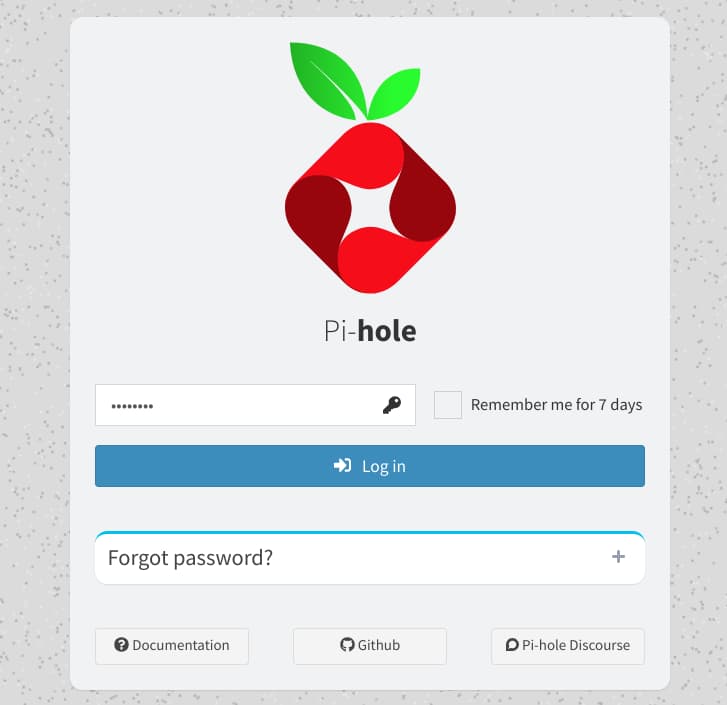
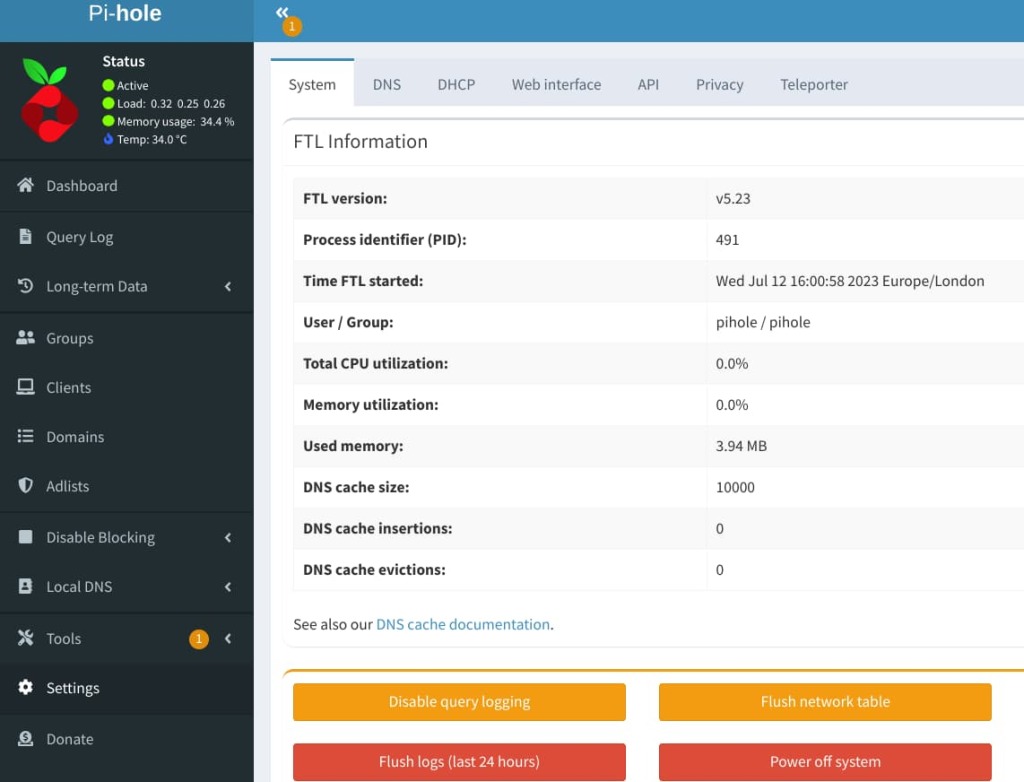
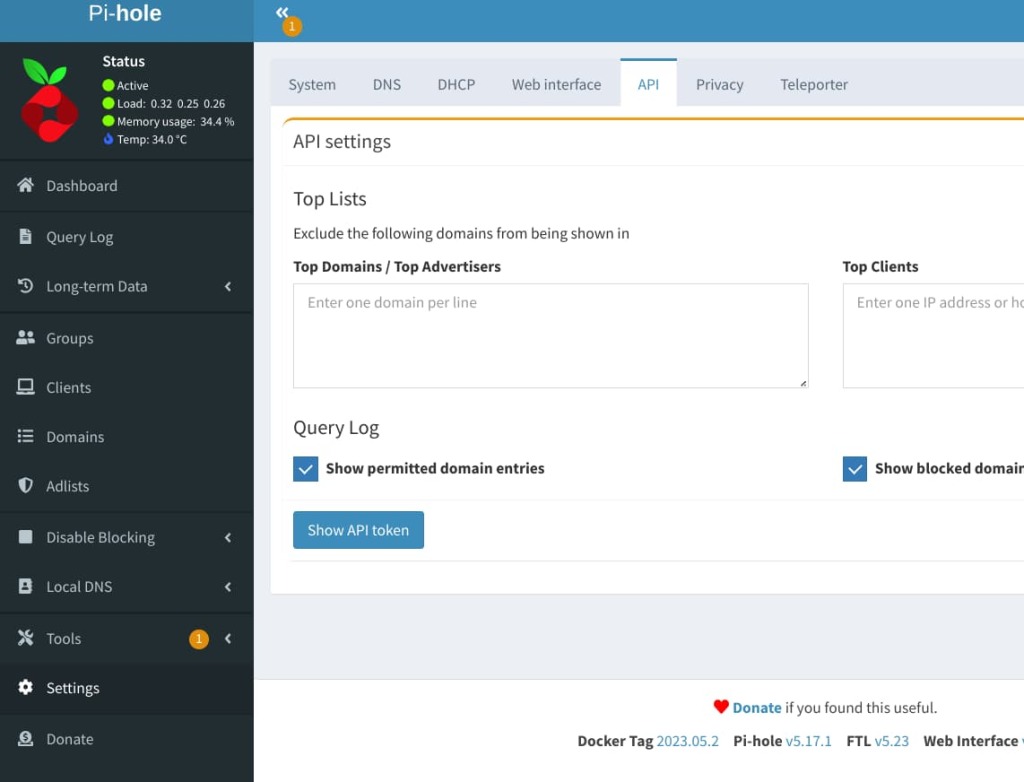
Once on the API page click on Show API token and click Yes, show API token to confirm.
Copy the login string below the QR code where it says RAW API Token ready to be added to Home Assistant shortly.
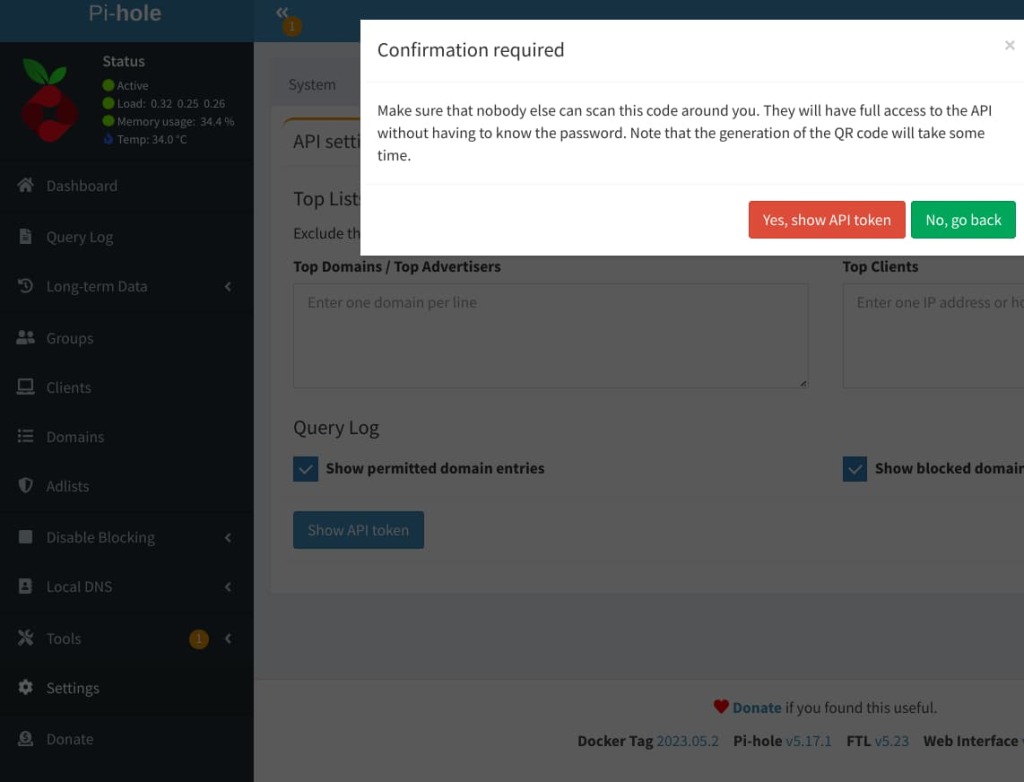
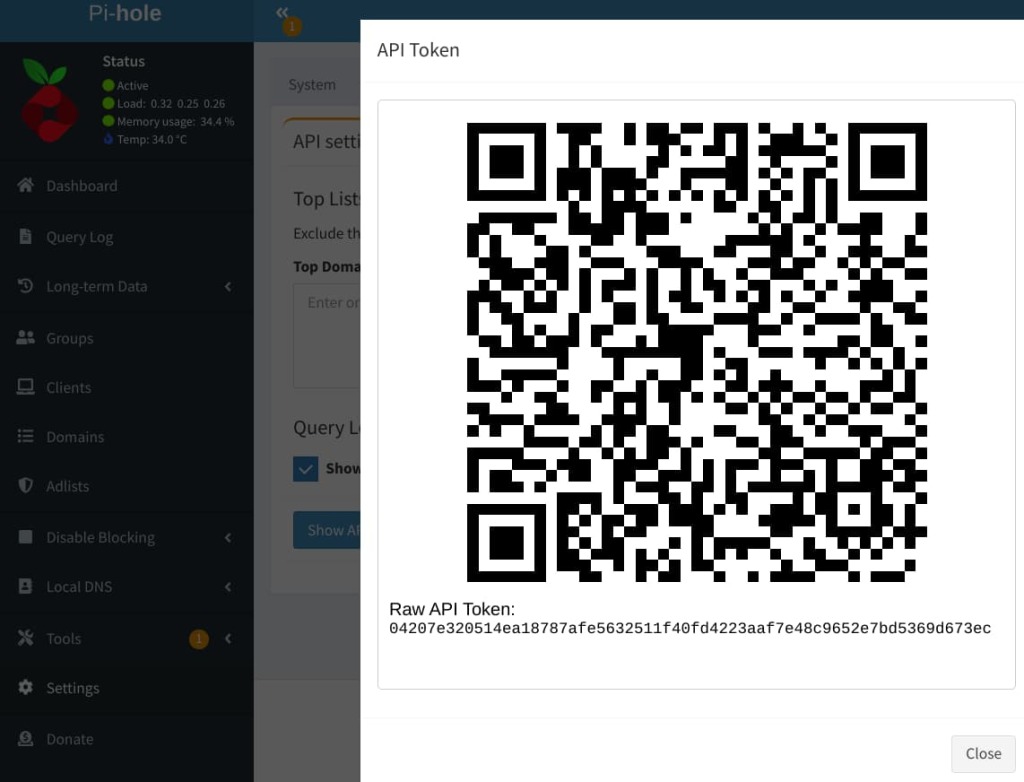
Configure the Home Assistant Pi-Hole integration by adding the Pi-Hole IP address and port then click ok. The next page will request you to enter an API key, this is the API token you copied in the previous steps, paste this in the box and click Submit.
If all went well, you should now see a success page where you can click Finish.
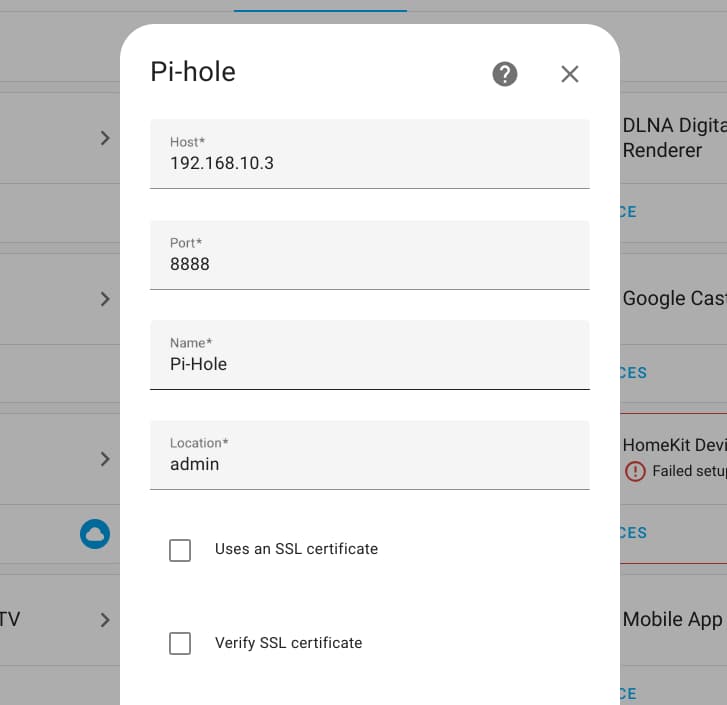
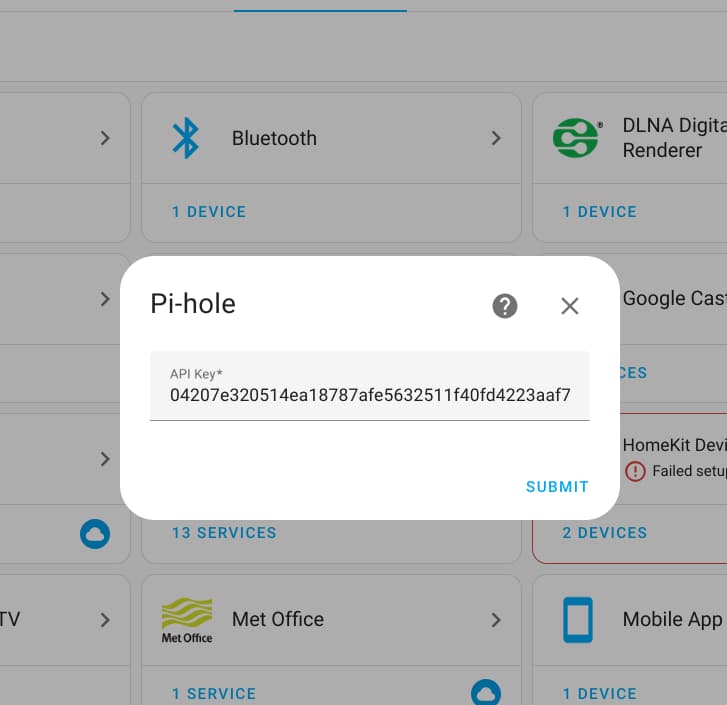
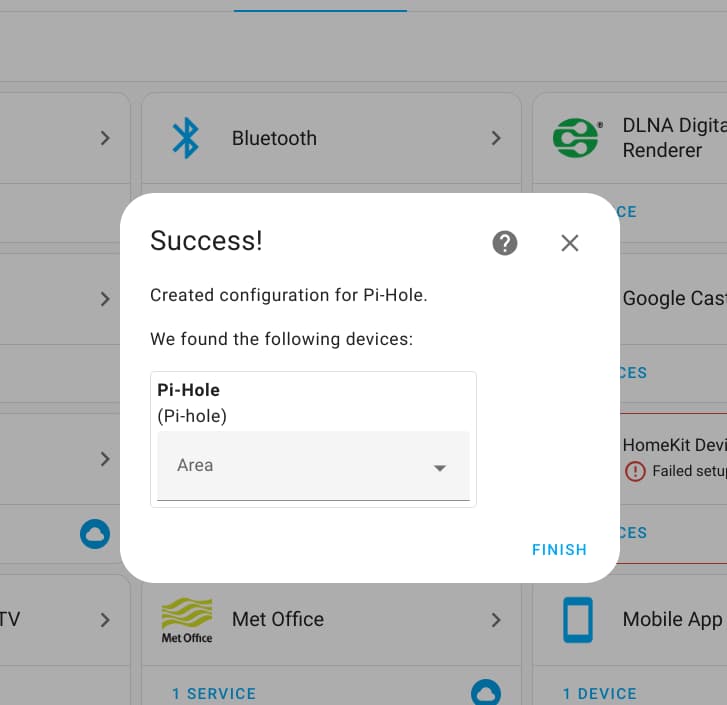
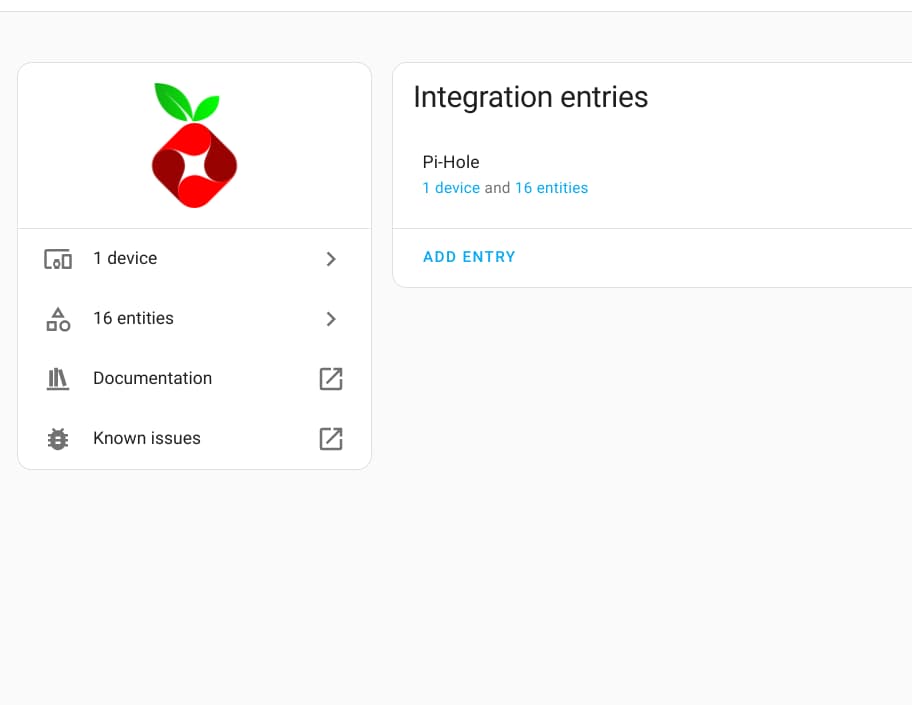
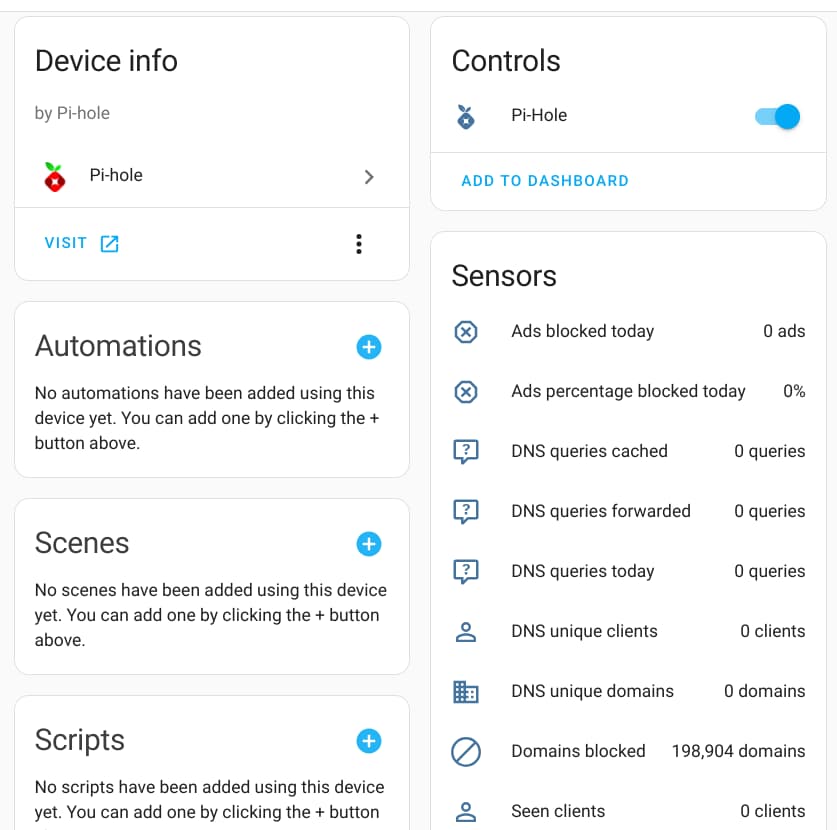
Advanced Configuration Options
For advanced users, Home Assistant offers various configuration options to customize the integration with Pi-Hole.
You can fine-tune the ad-blocking rules, schedule automatic updates, and even create interactive dashboards to visualize Pi-Hole’s statistics using the available sensors from the Pi-hole device in Home Assistant.
Enhancing Smart Home Privacy
Apart from integrating with Pi-Hole, Home Assistant provides additional features to enhance smart home privacy. You can enable SSL encryption, set up two-factor authentication, and control the data flow between your smart home devices and cloud services.
Securing Your Smart Home Network
Securing your smart home network is crucial to prevent unauthorized access and protect your privacy. Home Assistant and Pi-Hole play a significant role in achieving this. Additionally, you can follow best practices such as regularly updating firmware, using strong passwords, and segmenting your network for added security.
Troubleshooting Tips
In case you encounter any issues during the setup or operation of Home Assistant and Pi-Hole, here are a few troubleshooting tips:
- Ensure the correct configuration of Home Assistant and Pi-Hole.
- Verify that the Pi-Hole API key is correctly entered in Home Assistant.
- Check the network settings to ensure proper communication between Home Assistant and Pi-Hole.
- Monitor the Home Assistant logs for any error messages that might indicate the source of the problem.
Home Assistant Pi-Hole Alternative
The alternative to using Pi-Hole with Home Assistant is AdGuard.
Unlike Pi-Hole, AdGuard is available as an addon within Home Assistant which means you won’t need separate hardware to run an ad-blocker on your network.
Similar to Pi-Hole. AdGuard also has a Home Assistant integration allowing you to monitor and control settings directly from Home Assistant.
Conclusion
Home Assistant and Pi-Hole are a formidable duo when it comes to enhancing the privacy and security of your smart home. By leveraging their combined capabilities, you can enjoy a seamless and secure smart home experience. Take control of your privacy and protect your devices with Home Assistant and Pi-Hole today!
FAQs
Can I use Pi-Hole without Home Assistant?
Yes, Pi-Hole can be used as a standalone ad-blocking solution without Home Assistant.
Is Pi-Hole compatible with all smart home devices?
Pi-Hole works at the network level, making it compatible with any device that connects to the internet.
Can I whitelist certain domains with Pi-Hole?
Yes, Pi-Hole allows you to whitelist specific domains to allow ads or tracking on certain websites if desired.
What other integrations can Home Assistant offer?
Home Assistant offers a wide range of integrations with popular smart home devices, including lights, thermostats, cameras, and more.
Can I access Home Assistant and Pi-Hole remotely?
Yes, you can access both Home Assistant and Pi-Hole remotely through their respective web interfaces or dedicated mobile apps.
In this article, I explored how Home Assistant and Pi-Hole can enhance the privacy and security of your smart home.
By leveraging their unique features and integration capabilities, you can take control of your smart home network and enjoy a seamless and secure experience.
So why wait? Get started with Home Assistant and Pi-Hole today and make your smart home smarter and safer than ever before!
